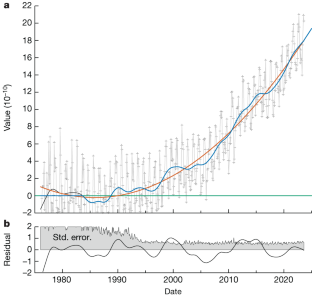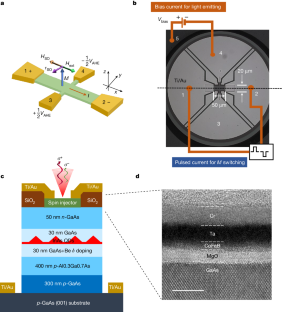2024-03-28 カリフォルニア大学サンディエゴ校(UCSD)
<関連情報>
- https://today.ucsd.edu/story/global-warming-is-influencing-global-timekeeping
- https://www.nature.com/articles/s41586-024-07170-0
地球温暖化が先送りする世界的な計時問題 A global timekeeping problem postponed by global warming
Duncan Carr Agnew
Nature Published:27 March 2024
DOI:https://doi.org/10.1038/s41586-024-07170-0

Abstract
The historical association of time with the rotation of Earth has meant that Coordinated Universal Time (UTC) closely follows this rotation1. Because the rotation rate is not constant, UTC contains discontinuities (leap seconds), which complicates its use in computer networks2. Since 1972, all UTC discontinuities have required that a leap second be added3. Here we show that increased melting of ice in Greenland and Antarctica, measured by satellite gravity4,5, has decreased the angular velocity of Earth more rapidly than before. Removing this effect from the observed angular velocity shows that since 1972, the angular velocity of the liquid core of Earth has been decreasing at a constant rate that has steadily increased the angular velocity of the rest of the Earth. Extrapolating the trends for the core and other relevant phenomena to predict future Earth orientation shows that UTC as now defined will require a negative discontinuity by 2029. This will pose an unprecedented problem for computer network timing and may require changes in UTC to be made earlier than is planned. If polar ice melting had not recently accelerated, this problem would occur 3 years earlier: global warming is already affecting global timekeeping.



